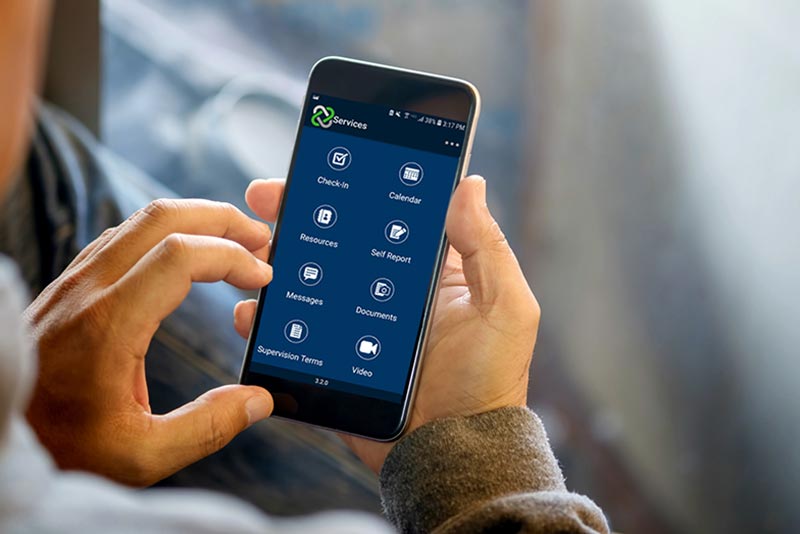
As the pandemic continues, it has forced agencies and reentry services providers such as GEO Reentry to adapt and evolve to the needs of each agency and program participant in delivering critical reentry services. A key to ongoing services and engagement for participants on their reentry journey has been the advancement of tele-supervision services, delivered remotely through a variety of technologies.
While some in-person services continue – with physical office adjustments to ensure social distancing and sanitation protocols in place to reduce the risk of Covid-19 spread – most of our reentry offices now offer remote services. Depending on the agency or state guidelines, our current hybrid model may include in-person services combined with phone and videoconferencing services. For example, groups for Substance Abuse, Anger Management, and MRT are being conducted in-person, with participants receiving home assignments that are discussed by phone a few days later. What we are hearing from participants is that they appreciate the in-person sessions, with reduced sizes, and the home follow up. We are also conducting in-person assessments and intakes.
In a previous blog article, we highlighted a paper by the American Probation and Parole Association that suggested that tele-supervision may be just as effective as in-person services. See the APPA Technology’s Part One article on tele-supervision here.
In a second installment by the APPA Technology team, Michael Delaney discusses the team’s assessment of technology and tools that can support tele-supervision, including smartphones, messaging services, videoconferencing, common apps, emails, virtual private networks and more.
Read Tools to Support Remote Client Contact for Community Corrections – Part Two.
One thing is clear: by forcing rapid changes to supervision services, the pandemic has forever altered how probationers, parolees and pre-trial defendants receive services that help hold them accountable while providing evidence-based services that focus on risk and recidivism reduction. Even if the pandemic eases in 2021, new advances will remain to help these individuals receive services in ways that will support success.
